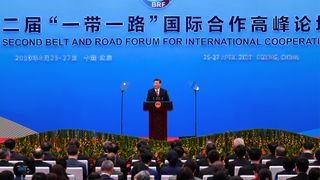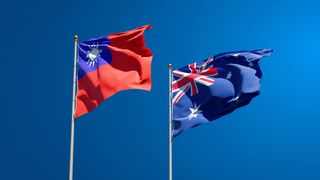To carry out China’s Belt and Road Initiative (BRI), China promises to spend more than US$1 trillion on new ports, railways, fibre-optic cables, power plants, and other connections across more than one hundred and thirty countries. The United States has cautioned that the BRI, President Xi Jinping’s flagship foreign-policy effort, amounts to “debt trap diplomacy”, “white elephants”, and an unprecedented expansion of Chinese military power. Yet some have said the United States and allies have failed to provide a sufficient “alternative” to BRI. How should the United States and allies like Australia respond? The conventional wisdom is that a more skeptical view of China is bipartisan in the United States but would a Biden administration’s response to BRI be substantively different from the Trump administration’s?
USSC hosted a discussion of the United States, Australia and China’s Belt and Road Initiative with Jonathan E. Hillman, author of the recently published The Emperor’s New Road: China and the Project of the Century (Yale University Press, 2020), in a conversation with the Australian Financial Review’s Lisa Murray.
Jonathan E. Hillman is a senior fellow with the CSIS Economics Program and director of the Reconnecting Asia Project, one of the most extensive open-source databases tracking China’s Belt and Road Initiative (BRI). Hillman has testified before Congress, briefed government officials and Fortune 500 executives, and written on economics, national security, and foreign policy issues for the Financial Times, Wall Street Journal, Washington Post, and other outlets. Prior to joining CSIS, Hillman served as a policy adviser at the Office of the US Trade Representative, where he contributed to the 2015 US National Security Strategy and the President’s Trade Agenda and directed the research and writing process for essays, speeches, and other materials explaining US trade and investment policy. He has also worked as a researcher at the Belfer Center for Science and International Affairs, the Council on Foreign Relations, and in Kyrgyzstan as a Fulbright scholar.
Lisa Murray is the editor of the Perspective and Review sections for the Australian Financial Review. She was previously based in Shanghai for six years as the AFR’s China correspondent writing about trade, politics and the economy.








